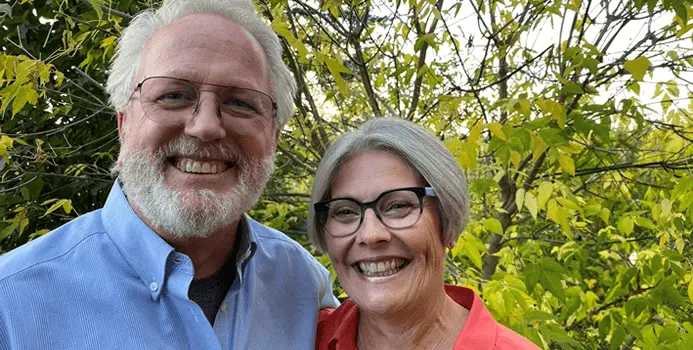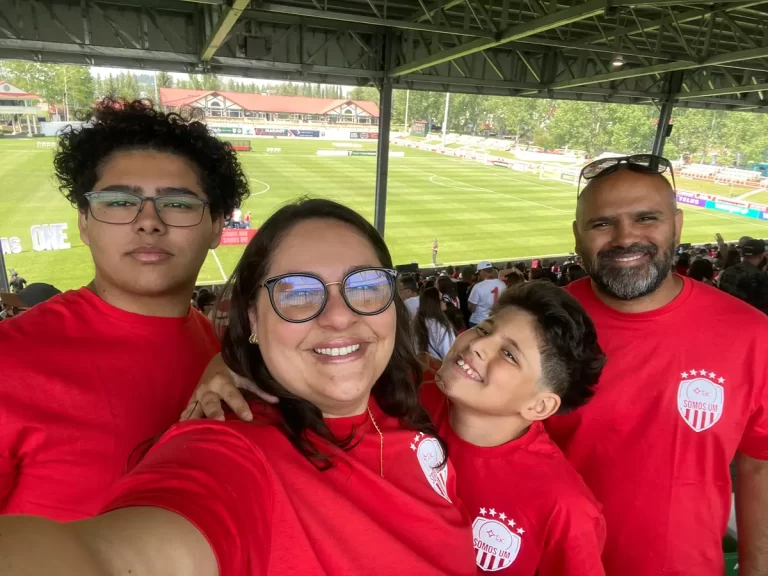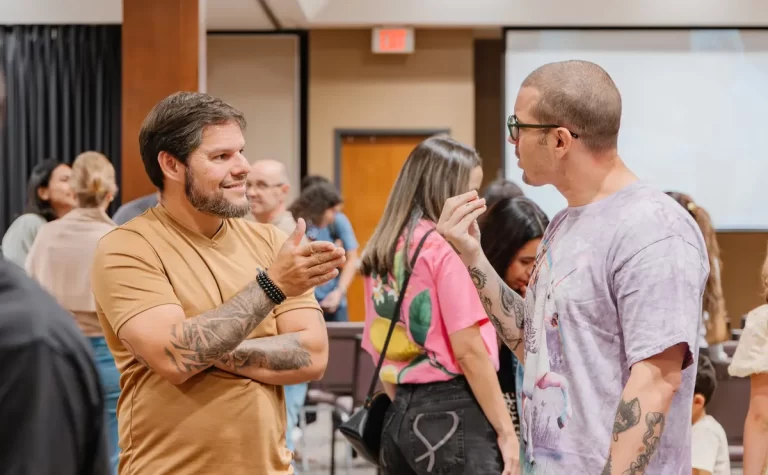
 “We are a nomadic people, a courageous people that are not distracted by the glitz and glamour of bricks and mortar, but rather filled with visions and dreams that call us to go beyond the walls of the church into our greater neighbourhoods and communities through incredible ingenuity and creativity.” That’s how I ended the very first article I ever wrote for Storyline magazine. These words came back to my mind as I sat there in Knox United Church and listened to Brian McLaren’s opening statement in his talk, Rewilding Christianity, “What if the architecture of the church stopped being an indoor religion and became an outdoor reality?”
“We are a nomadic people, a courageous people that are not distracted by the glitz and glamour of bricks and mortar, but rather filled with visions and dreams that call us to go beyond the walls of the church into our greater neighbourhoods and communities through incredible ingenuity and creativity.” That’s how I ended the very first article I ever wrote for Storyline magazine. These words came back to my mind as I sat there in Knox United Church and listened to Brian McLaren’s opening statement in his talk, Rewilding Christianity, “What if the architecture of the church stopped being an indoor religion and became an outdoor reality?”
As I pondered the question, the theme of simplicity McLaren writes about in his book The Great Spiritual Migration seemed to outline how we might envision the church as it was always meant to be – a people called into the missional movement of God in our neighbourhoods, social spaces, and homes. Walking through the themes of simple beliefs, complexities of God, and simplicity of mission just might perhaps reveal a new way to be the church.
Simple Beliefs
“We are people who feel,” Kelvin Block said to me as we conversed over coffee about McLaren’s book. He continued, “We have experienced things, and then we determine and evaluate them. We make choices and sometimes we make those choices out of freedom and sometimes we make choices from a place of concern, fear – almost more reactionary.”
All of us have beliefs that shape the way in which we see the world and the people we find ourselves in relationship with. But if our beliefs are constructed out of an irrational fear of the unknown, or the concern of irreconcilable differences, beliefs become exclusionary boundary lines that divide and keep us apart. They don’t have to even be defined or visible; they can exist within our own subconscious minds, keeping us enslaved from participating in the freedoms God deeply desires for us (John 10:10). It doesn’t take much to see how these beliefs have created divisions in our current society. Whether it is an off-the-cuff remark towards political agendas, a strong-willed statement about “Canadian values” and the immigrant population’s perceived lack thereof, or the prideful boast of a particular believer saying, “Thank God I’m not like …” (Luke 18:9-14), our culture’s enslavement to belief boundaries stifles our freedom to love unconditionally and become the movement that God so deeply desires us to be.
McLaren instead articulates a freedom in which our beliefs do not have to be divisive but rather unite us relationally like a ligament that binds humanity with creation, one another, and God in equity. The call of Jesus to “Love one another as I have loved you” (John 13:34) bridges all things into a reality of simple understanding; beliefs are found not in dogmatic writings, creeds, or doctrinal rights, but in our relationships with others and the world (John 3:16)! As Brian McLaren states, “If Christian faith can be redefined in this way, if our prime contribution to humanity can be shifted from teaching correct beliefs to practicing the way of love as Jesus taught, then our whole understanding and experience of the church could be [radically] transformed.”
Complexities of God
I recently did a search to find out exactly how many Christian denominations exist worldwide. While the exact number seems a bit elusive, one website actually referenced 33,000 denominations of Christian beliefs. So if each of these had a particular understanding of just who God is, which is the right one? What if we expanded my search to include every religion that exists in the world and every nuance they have in definition? It seems virtually impossible to truly understand who God is in His entirety. But then, who ever told you that you had to know God is His entirety?!
A few months ago I sat down with Rev. Anna Greenwood-Lee as we discussed McLaren’s thoughts around the nature of God and how we can understand Him. It was an eye-opening realization that in any understanding of God we must also find the language with which we choose to describe Him. Trying to draw the thought out I said to her, “So any language we choose for God is like a finger pointing at the moon. It’s not God’s fully articulated essence, it’s our best attempts to speak of God in all His grandeur.”
Rev. Anna would go on to say, “God is always bigger than language, so we have to have a certain amount of humility for whatever language we use for God. And we also have to humbly accept whatever language others use for God too, because it speaks of their experience of God and we should respect that.”
There is always a resistance here, it seems – like we are afraid that another person’s experience of God is somehow going to diminish or disqualify our own. It’s like that child who upon hearing that their father or mother showed appreciation to another sibling or friend, is then filled with fear at losing their parents’ affections. Yet God readily affirms in us:
“For the mountains may depart and the hills be removed, but My steadfast love shall not depart from you.” (Isaiah 54:10)
And Jesus told His followers:
“I am with you always, to the end of the age.” (Matthew 28:20)
McLaren’s focus in his book The Great Spiritual Migration is to draw our thoughts to the nature of unlimited love within God and the mysterious wonder in which He shares that love with all of us. As we come to understand God in maturity, we no longer find our relationship with Him constrained by the gravitas of other people’s relationships with Him, but rather are drawn to God directly through our own passions, experiences, and love for Him.
This maturity in our faith removes us from the competitive colonial projections of God in this world, allowing us to find our relationship with Him in all places and with all people. “To accept Jesus and to accept the God Jesus loved,” McLaren writes, “is to become an atheist in relation to the Supreme Being of violent and dominating power. We are not demoting God to a lower, weaker level; we are rising to a higher and deeper understanding of God as pure light, with no shadow of violence, conquest, exclusion, hostility, or hate at all.” It is our love for God that compels us to love all else regardless of ethnicity, gender, culture, dress, religion, or otherwise. Or as Gregory of Nyssa stated, “Concepts create idols; only wonder grasps anything.”
Simplicity in Mission

I’ve known Karen Wilk for years and I was excited to sit with her a few weeks ago and talk about McLaren’s thoughts on God’s mission. But her focus on the experience of mission as sacrament really resonated in my heart as she openly shared, “The peace beyond sacrament is sacramental and that happens on my street in everyday conversations, in my home at the dinner table, and at my neighbour’s table through the simple things like shared bread and wine. And those are actually sacramental without sacrament, if I can put it that way.”
It seemed as though she touched a spiritual rhythm I had discovered in living with my own neighbours. Of course, life with others is also messy. It’s not always fantastic, chef-prepared meals at the table or divinely-encountered prayers in the living room. It’s those moments of gathering around the backyard fire pit one evening while your neighbour makes grilled cheese sandwiches for everyone over the open flame. Or that awkward time when the new person rang the doorbell, but you were stuck standing outside in the winter cold without a jacket, delaying their entering because your other friend was using the foyer washroom and their wheelchair was blocking the door from being able to close. Like I said … it’s messy!
McLaren’s perspective on mission entwines itself with God’s radical movement as He enters our culture and world and they collide with His Kingdom in the present (Mark 1:15, Luke 10:9). We in essence collaborate with Him and His followers in revealing heaven on earth, so that our imaginations are stretched beyond the thought of salvation in future perspective and instead catalyzes us to participate in the works of salvation today. “A movement is more than a structure mobilizing people around a message to seize opportunities for change,” McLaren writes. “It is also a culture or set of cultures that sustains a community of people as they experience belonging and meaning together.”
Going deeper into the simplicity of following Jesus’ example of a life in mission he states, “His movement culture was unique and distinctive, characterized by feasts, parties, joyful processions, and outdoor festivals at which usually stigmatized and outcast people were warmly welcomed.” The embrace of all regardless of their marginalized states brought a distinction to God’s missional community. While we can honour the traditions and rituals of the past for the deeply rich ways they drew us closer to God in relationship, the spiritual life of His missional call also takes up the likeness of God’s creativity and finds new expressions in rituals and practices of simplicity and daily life with others. As Cathrine of Siena once said, “All the way to heaven, is heaven.”
A New Way to Be the Church
The Great Spiritual Migration was deeply challenging to me and not always easy to agree with; it had an incredible message that both inspired and brought great question. My friend Preston Pouteaux spoke with me several years ago about how all good things travel through a path of starting simple, wrestling with complexity, and coming out in simplicity. It seems McLaren’s thoughts around beliefs, God, and mission are no different.
The call for us and the Church as a whole may be to consider this path – this new way to be the church. As McLaren shared with us in the conference I attended in November, “The only way to be faithful to the creed and doctrine writers of history is to write and respond to the critical issues of our time.” Connecting, Growing, Serving, and Sharing are amazing spiritual rhythms to be in sync and indoors with. But, if these values are to maintain a missional impulse that grow beyond simple belief, matures in the complexities of God’s likeness, and catalyzes into the simplicity of mission as an outdoor reality, we must allow our imaginations to flourish, our innovation for creative living structures to expand, and have the courage to live them out fully. This is a new way to be the church – and tomorrow is our future!
- Written by Erik Freiburger
Erik attends FAC and contributes to our quarterly publication, Storyline, dedicated to building the church by sharing stories of God at work in ordinary lives. You can read more of his writing on his personal blog: theinceptionofwonder.com.



